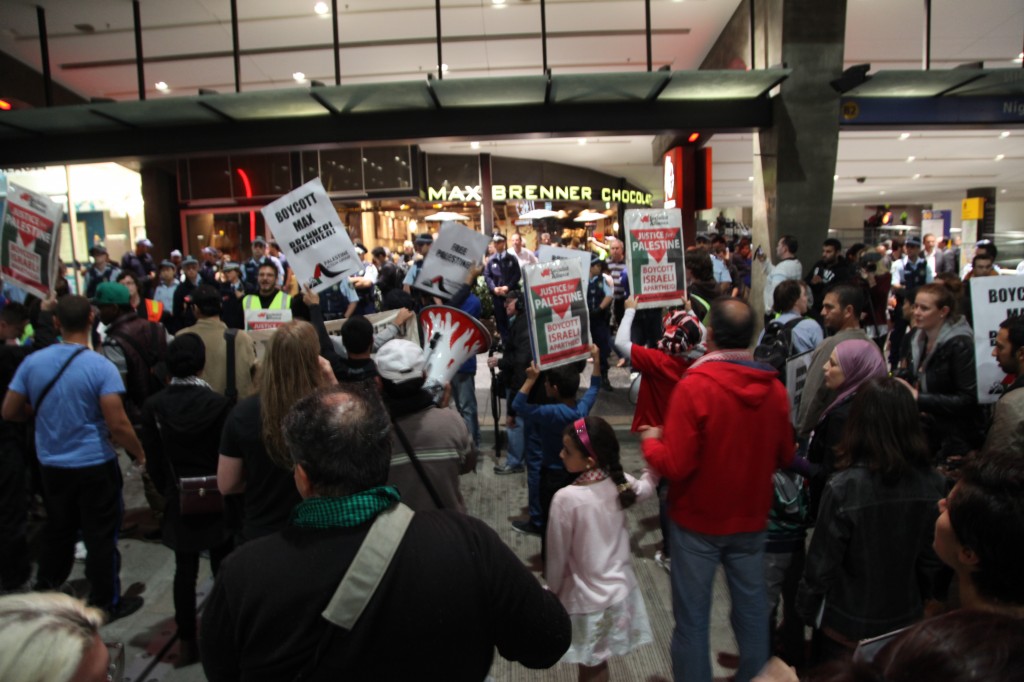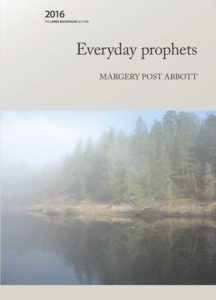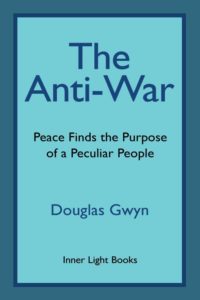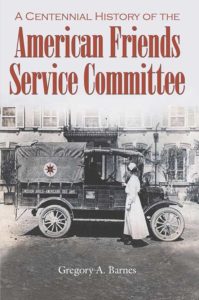Religion, Politics, and the Origins of Palestine Refugee Relief: Romirowsky, A., Joffe, A.: 9781137378163: Amazon.com: Books
Religion, Politics, and the Origins of Palestine Refugee Relief 2013th Edition
by A. Romirowsky (Author), A. Joffe (Author)
5.0 out of 5 stars 2 ratings

ISBN-13: 978-1137378163
ISBN-10: 1137378166Why is ISBN important?
Kindle 
Hardcover
AUD 124.46 - AUD 149.84
This book examines the leading role of the Quaker American Friends Service Committee (AFSC) in the United Nations relief program for Palestine Arab refugees in 1948-1950 in the Gaza Strip. It situates the operation within the context of the AFSC's attempts to exercise new influence on the separate issues of pacifism and disarmament at a time marked by US efforts to construct a Cold War security regime in the Middle East and British efforts to retain influence and bases in Arab countries. Using archival data, oral histories, diplomatic documents, and biographical and autobiographical accounts, the authors provide a detailed look at internal decision-making in an early non-governmental organization where beliefs regarding the requirement to provide refugees with skills for self-reliance clashed with intractable political and cultural realities and the realization that only full repatriation or resettlement elsewhere would solve the problem (a lesson that UNRWA and the international community learned only decades later). Faced with impossible solutions, the Quakers withdrew. The story of AFSC involvement in Gaza shows that refugee relief is always political and that humanitarianism can prolong the problems it seeks to solve. (less)
Religion, Politics, and the Origins of Palestine Refugee Relief
by Asaf Romirowsky and Alexander H. Joffe
New York: Palgrave Macmillian, 2013. 254 pp. $100.
Reviewed by Susan M. Jellissen
Belmont University, Nashville
Middle East Quarterly
Winter 2015
Send
Print
Share6
Romirowsky and Joffe trace the involvement of the American Friends Service Committee (AFSC)—a Quaker organization founded long before 1948 to assist civilians caught up in the maelstrom of war—in its pivotal role as relief provider to Arab refugees in Gaza under the auspices of the
United Nations Relief for Palestine Refugees (UNRPR). Painstakingly combing through personal memoirs, cables, and diplomatic communiqués, the authors construct a rich history of the immediate post-1948 period. The AFSC was determined that its relief mission be short-lived to thwart any "moral degeneration" that might occur from a continuing refugee status. Its preferred solution was "repatriation" (return to homes in the territory that became Israel) but quickly changed to resettlement in adjacent Arab states, such as Jordan, Egypt, and Syria, as a more judicious option. This approach was also seriously considered by the U.S. government—then and now the principal source of monetary aid to the refugee operation—along with a program of political and economic development in the Middle East directly connected to larger Cold War policies.
But the idea of refugee resettlement in Arab states soon fizzled out. As the authors illustrate, both field personnel and those at the policy-making level within AFSC understood that the refugees were being used as pawns by the Arab governments in their propaganda war against Israel. Once UNRPR's mandate expired in 1950, the United Nations established the U.N. Relief and Work's Agency for Palestine Refugees in the Near East (UNRWA) as its replacement, and from then on, the fix was in. For reasons ranging from bureaucratic inertia to self-interest, but most importantly Arab governments' clear desire to maintain the refugee problem, UNRWA has, for the last sixty-five years, provided "relief" to a population that has increased nearly ten-fold and whose questionable refugee status is handed down to each successive generation as their prized—and lucrative—legacy.
As the authors note, a continuing and permanent refugee status became a necessary condition for the fostering of a "Palestinian" identity. Rather than use its influence among the Arab states to implement a resettlement program, which would have ultimately been to the refugees' advantage, the U.S. government pandered to a set of ideas that would prove inimical to long-term regional stability as well as to Israel's security. This ill-conceived approach continues to this day, sustaining the most powerful weapon in the Arab arsenal against the legitimacy of the Jewish state.
Review: Religion, Politics, and the Origins of Palestine Refugee Relief
DEC 15, 2016, 8:02 PM
FACEBOOK
TWITTER
EMAIL
PRINT
Please note that the posts on The Blogs are contributed by third parties. The opinions, facts and any media content in them are presented solely by the authors, and neither The Times of Israel nor its partners assume any responsibility for them. Please contact us in case of abuse. In case of abuse,
Report this post.
“Religion, Politics, and the Origins of Palestine Refugee Relief” by Asaf Romirowsky & Alexander Joffe (Palgrave Macmillan, 2013). ISBN: 1137378166.
On the surface, this impressive scholarly work looks narrow in scope: it examines the brief role played by the Quakers in providing relief for the Arab refugees created after the Arab invasion of the newly established State of Israel, work which lasted only from 1948-50 and focused only on the Gaza Strip. But along the way it contains some important broader lessons, and offers many poignant insights about the Israeli-Palestinian-Jewish-Arab-Muslim conflict (my term) in general and the political dimension of the refugee problem in particular.
For some background: Since its creation in late 1949, the United Nations Relief and Works Agency (UNRWA) has devoted itself to maintaining specifically the Arab refugees above (and their descendants), providing them health, welfare, and education services as well as being a major source of their employment, while all other refugees from all other global conflicts fall under the purview of the United Nations High Commissioner for Refugees. Much has been written about the problematic history of UNRWA and its active promotion of the anti-Israel Palestinian narrative, including the infamous “Right of Return” according to which Palestinian Arabs and their generations of descendants are allegedly entitled to return to territory that is now the State of Israel.
State of Jerusalem: The Maqdasyin
Keep Watching
Far less well known is that the international community initially provided relief to the Arab refugees through very different means.
In December 1948, the U.N. asked three organizations, the Quakers’ American Friends Service Committee (AFSC), the International Committee of the Red Cross, and the League of Red Cross Societies, to provide relief. The AFSC was assigned to the Gaza Strip. It is the AFSC story that is explored in this book, and it in particular offers important lessons regarding the roads not taken in UNRWA’s later, and now seemingly permanent, relief effort.
Leaving aside the book’s many carefully researched details about AFSC’s work, consider just this single passage, from a March 1949 AFSC document prepared for the U.N. just two months after AFSC had been in the field:
Following a review of the refugee situation in Palestine generally and more particularly in the Gaza Strip, the AFSC wishes to state its position regarding the continuance of the refugee relief program. The AFSC wishes to withdraw from direct refugee relief in the Gaza Strip at the earliest possible moment compatible with the fulfillment of its moral obligation to the refugee population. It is obvious that prolonged direct relief contributes to the moral degeneration of the refugees and that it may also, by its palliative effects, militate against a swift political settlement of the problem. (p. 86)
This remarkable early passage, Romirowsky and Joffe suggest, “is perhaps the single most perceptive statement made with respect to Palestine refugee relief across some six decades” (87). For one thing, the AFSC acknowledges what it sees as a moral obligation to the refugees, one which derives both from their general Quaker outlook as well as from their short time developing personal relationships with the refugee population. Yet at the same time they remain adamant that their commitment was to be limited in duration, for fear of both contributing to the “moral degeneration” of the refugees and to forestalling a “political settlement” of the problem, namely the Arab-Israeli conflict.
How prescient these remarks seem, nearly 68 years later.ADVERTISEMENT
By becoming a perpetual welfare organization, UNRWA has now produced several generations of dependent people who feel absolutely entitled to the aid that the world bestows upon them—a concern that we now learn was fully apparent at the beginning, as ASFC field reports document both the refugees’ “strong feelings” that the U.N. “has the total responsibility to feed, house, clothe” them and the occurrence of refugee “demonstrations” demanding that U.N. “compensate” them and “maintain” them.
More importantly, the AFSC saw immediately that the refugees were being used in the service of political agendas. After its extensive work in global refugee relief after World War Two the AFSC understood the importance of resettlement and rehabilitation: that is, of finding the refugees new, permanent homes and equipping them to make a living. Their efforts to this end in Gaza, however, were repeatedly foiled, as revealed in internal AFSC documents. The Egyptians (for example) had a policy, one staffer notes, of refusing
all requests for refugee transfer out of the Gaza Strip, even for individuals called to a specific employment opportunity … The policy is in fact … a reflection of some obscure notion that “possession” of 200,000 Gaza refuges is some sort of lever in international bargaining. (139)
More generally, he reported, “The Arab Governments do not want the refugee problem solved on its merits, and will willingly accept solution only if their political price is met” (140).ADVERTISEMENT
To this day the Arab world continues to refuse to resettle these refugees—now, via their descendants, numbering in the many millions—in order to use them as “levers” in their ongoing battle against the Jewish state.
In similar ways AFSC communications document the difficulties in formulating definitions of “refugee,” the widespread fraud that was present in the registration of refugees, and the problem that internationally supported schools were being used to brainwash Arab children with hateful anti-Israel propaganda. It was largely because the AFSC objected to such a corrupt, and apparently unending, relief system that it chose to exit from Arab refugee relief in 1950. Meanwhile the organization that inherited the task—UNRWA—has gone on to propagate these problems, exactly as the AFSC feared.
Today, unfortunately, the AFSC leverages its history and past good work in order to contribute to the global battle against Israel. The AFSC’s support for the BDS movement is one element. Another is the way in which anti-Israel radicalism are introduced into Quaker schools through the intellectual leadership provided by the AFSC. The many local Quaker fellowships around the country, although greatly reduced in number from their 20th-century heyday, are important tools for the AFSC to shape local BDS efforts, usually in association with other Christian, pro-Palestinian, and “anti-war” groups. All this is predicated on a distinguished history that the AFSC both leverages and disregards.
Romirowsky and Joffe have done a terrific job shedding light on a previously unilluminated corner of this intractable conflict, in so doing making crystal clear some key lessons that should have been, but were not, learned.
ABOUT THE AUTHORAndrew Pessin is a philosophy professor, Campus Bureau Editor at The Algemeiner, co-editor of "Anti-Zionism on Campus," and author most recently of the novel, "Nevergreen," an academic satire examining campus cancel culture and the ideological excesses that generate it. For more information, visit www.andrewpessin.com.
Editorial Reviews
Review
Review
'Romirowsky and Joffe trace the involvement of the American Friends ServiceCommittee (AFSC) a Quaker organization founded long before 1948 to assist civilians caught up in the maelstrom of war in its pivotal role as relief provider to Arab refugees in Gaza under the auspices of the United Nations Relief for Palestine Refugees (UNRPR). Painstakingly combing through personal memoirs, cables, and diplomatic communiqués, the authors construct a rich history of the immediate post-1948 period. [ ] As the authors illustrate, both field personnel and those at the policy-making level within [the] AFSC understood that the refugees were being used as pawns by the Arab governments in their propaganda war against Israel. [ ]This ill-conceived approach continues to this day, sustaining the most powerful weapon in the Arab arsenal against the legitimacy of the Jewish state.' -Susan M. Jellissen, Belmont University, USA, Middle East Quarterly
About the Author
Author Asaf Romirowsky: Asaf Romirowsky is a Middle East historian. Author Alexander H. Joffe: Alexander H. Joffe is an archaeologist and historian.
Read less
Product details
Publisher : Palgrave Macmillan; 2013th edition (December 18, 2013)
Language : English
Hardcover : 263 pages==
Religion, Politics, and the Origin of Palestine Refugee Relief
by Asaf Romirowsky and Alexander H. Joffe
(New York: Palgrave Macmillan: 2013) 254 pp.
Reviewed by Joseph S. Spoerl, Professor, Philosophy Dept., Saint Anselm College
This book is a carefully researched study of the earliest efforts to provide relief to the Palestinian Arabs who became refugees during the first Arab-Israeli war, or Israel’s War of Independence, in 1948. While other groups, such as the Red Cross, provided emergency aid, this book focuses primarily on the role of the American Quakers (or “Friends”) operating through the American Friends Service Committee (AFSC). In addition to surveying all the available literature on the subject, the authors did extensive research in the Quaker archives in Philadelphia.
For about 18 months, the AFSC provided relief to Palestinian Arab refugees in the Gaza Strip. The AFSC built schools and clinics and taught vocational skills. Unlike other organizations, the AFSC actually took the trouble to conduct an accurate census of refugees and thereby reduced the refugee rolls, fought corruption and fraud, and got costs under control.
The Quakers had the quaint idea that it would be morally harmful to the refugees for them to remain on relief for too long. The goal, they thought, must be to help them start new lives and become self-supporting again, if not in Israel then elsewhere. When it became clear to them that the refugees themselves insisted on perpetual relief since repatriation to Israel was not feasible, the Quakers terminated their operations in Gaza, handing the work over to UNRWA, the United Nations Relief and Works Agency for Palestine Refugees in the Near East, which began to operate in 1950 and continues today, the population of “registered refugees” having burgeoned in the meantime from 735,000 in 1949 to over 5,250,000 today. (UNRWA, bowing to pressure from the Palestinians, unilaterally decided some years ago to define “Palestinian refugee” status as inheritable by patrilineal descent in perpetuity, thus guaranteeing the exponential growth of the very population that still demands a “right of return” to Israel proper.)
This book shows that key features of the Israeli-Palestinian dispute were set very early. The Quakers noticed the refugees’ pronounced tendency to blame all their troubles on anyone but themselves. It never apparently occurred to any of them that the Palestinian leaders that many of them had presumably supported (e.g. Hajj Amin al-Husseini) bore much responsibility for the disaster of 1948. The Quakers documented the Egyptian government’s refusal to allow any movement of the refugees out of the Gaza Strip (controlled by Egypt until 1967), and they recognized that the Arab governments did not want the refugee problem solved, since they wished to use the refugees as a weapon to continue the struggle against Israel.
The US government, which played by far the largest roll in funding and establishing UNRWA, encountered the same recalcitrance on the issue of resettlement. In the 1950s, the US tried to resettle the refugees in other countries, but the Arab states and the refugees themselves would accept nothing less than repatriation to Israel; barring that, they felt entitled to demand UN-funded welfare in perpetuity. The welfare continues to flow, with the US and even Israel fearing that any cutoff in aid will create instability in the areas populated by the refugees (the West Bank, Gaza, East Jerusalem, Jordan, Syria, and Lebanon).
UNRWA answers to no one but the UN General Assembly, which is totally dominated by pro-Palestinian states. The vast majority of UNRWA employees are Palestinian “refugees” who have turned it into a rent-seeking organization that seeks above all else to keep itself in existence and maximize its income. UNRWA leaders publicly insist that Palestinian “refugees” have a “right of return” to Israel proper – a demand that has played a key role in sabotaging peace negotiations between Israel and the Palestinians, since no Israeli government could ever agree to it.
It was the US and British founders of UNRWA who chose to make it autonomous instead of putting it under the General Secretary of the UN, thinking this would make it easier for the US and Britain to control it. Romirowsky and Joffe note wryly that UNRWA’s founders “failed to conceive that the relief organization would survive over sixty years and along the way, fall into the hands of its charges” (p. 117). UNRWA has become a major obstacle to the Israeli-Palestinian peace that successive US governments have been trying to broker now for decades.




.png)




 Send to Kindle
Send to Kindle


 By Margery Post Abbott. James Backhouse Lecture, 2016. 52 pages. $14/pamphlet; $8/eBook.
By Margery Post Abbott. James Backhouse Lecture, 2016. 52 pages. $14/pamphlet; $8/eBook. By Douglas Gwyn. Inner Light Books, 2016. 208 pages. $30/hardcover; $17.50/paperback.
By Douglas Gwyn. Inner Light Books, 2016. 208 pages. $30/hardcover; $17.50/paperback.